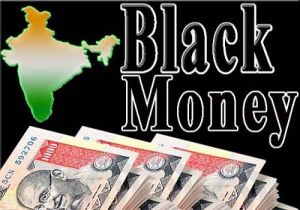
December 18: The Indian economy suffered $1.6 billion in illicit financial outflows in 2010, capping-off a decade in which it experienced black money losses of $123 billion, according to a new report.
India is ranked as the decade's 8th largest victim of illicit capital flight behind China, Mexico, Malaysia, Saudi Arabia, Russia, the Philippines, and Nigeria, respectively in the report by Global Financial Integrity, a Washington-based research and advocacy organization.
Titled "Illicit Financial Flows from Developing Countries: 2001-2010," the report found that all developing and emerging economies suffered $858.8 billion in illicit outflows in 2010, just below the all-time high of $871.3 billion set in 2008-the year preceding the global financial crisis.
"While progress has been made in recent years, India continues to lose a large amount of wealth in illicit financial outflows," said GFI Director Raymond Baker.
"Much focus has been paid in the media on recovering the Indian black money that has already been lost," he said suggesting policymakers should instead make curtailing the ongoing outflow of money priority number one.
"$123 billion is a massive amount of money for the Indian economy to lose," said Dev Kar, GFI lead economist and co-author of the report with GFI economist Sarah Freitas.
"It has very real consequences for Indian citizens. This is more than $100 billion dollars which could have been used to invest in education, healthcare, and upgrade the nation's infrastructure," he said.
A Nov 2010 GFI report, "The Drivers and Dynamics of Illicit Financial Flows from India: 1948-2008," found that the Indian economy lost $462 billion to illicit financial outflows from 1948 through 2008.
Authored by Kar, the report measured India's underground economy as 50 percent of GDP, with cumulative illicit outflows accounting for an increasing share of the total underground economy.
The new GFI study also estimates the developing world lost a total of $5.86 trillion to illicit outflows over the decade spanning 2001 through 2010.
The $858.8 billion of illicit outflows lost to all developing countries in 2010 is a significant uptick from 2009, which saw developing nations lose $776.0 billion.
GFI advocated that world leaders increase the transparency in the international financial system as a means to curtail the illicit flow of money highlighted by Kar and Freitas' research.





Comments
Add new comment